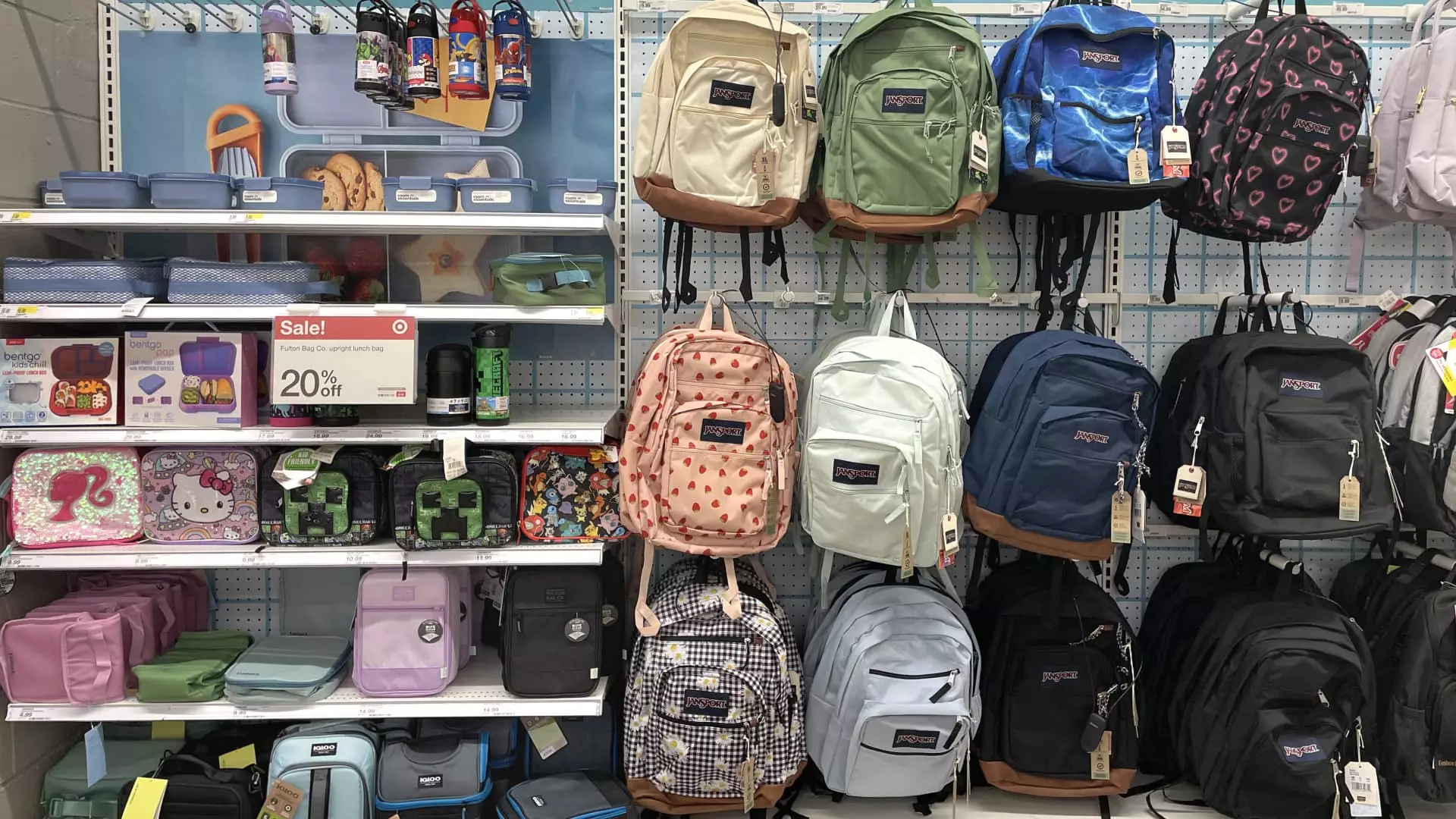As the economy appears to exhibit signs of stability—relatively slow inflation and cautious optimism—an insidious threat looms beneath the surface: mounting tariffs and protectionist policies are quietly siphoning away the purchasing power of everyday families. For millions, especially parents navigating the back-to-school season, this isn’t just an inconvenient trend; it’s a harbinger of deeper financial strain. While official statistics suggest resilience, a closer look reveals that the affordability of basic necessities is rapidly deteriorating, with tariffs acting as the stealthy culprits.
The recent data underscores a paradox. Despite inflation cooling, the true price of essential items like backpacks, stationery, and clothing is climbing. This disconnect is largely attributable to the new tariff regimes imposed by the Trump administration—aggressive measures aimed at reshaping trade but ultimately translating into higher import costs. These tariffs, though temporarily paused or delayed, threaten to leak into the retail market, exacerbating the already tenuous economic footing of many working families. The retail sector’s cautious optimism belies the financial anxiety felt by parents, who are now being forced to make difficult decisions on what to prioritize and what to cut from their children’s back-to-school budgets.
Contrary to the rosy narrative of a recovering economy, the reality for many is one of increased hardship. According to Deloitte, average back-to-school spending, once expected to increase, is actually declining slightly—down from $586 to roughly $570 per child—despite retail prices edging upward. This isn’t due to a lack of need but a clear sign that consumers are tightening their belts, shifting away from preferred brands, and favoring more affordable outlets. The fact that 75% of parents now say they will switch brands if prices are too high signals a stark reorientation of purchasing habits, an erosion of brand loyalty, and a recognition that affordability is the top priority in these uncertain times.
The Tariff Tangle: Economic Policy or Political Posturing?
The deliberate and persistent use of tariffs by the government is often justified as a tool to bolster domestic industries or negotiate stronger trade terms. But when these policies result in higher consumer prices, especially during key purchasing periods like back-to-school, the costs are borne disproportionately by working-class families, who can least absorb additional financial shocks. The recent delay in tariff enforcement—initially set to activate earlier this year—merely prolongs an economic fog that discourages strategic planning. Meanwhile, consumers are caught in a limbo, unsure whether prices will spike suddenly or remain temporarily stable.
Economists caution that the full impact of these tariffs has yet to manifest, but the warning signs are undeniable. The National Retail Federation’s chief economist, Jack Kleinhenz, emphasizes that if these duties persist, consumer prices will inevitably rise, leading to reduced spending and increased brand-switching. This, in turn, could trigger a chain reaction: decreased economic activity, lower sales for retailers, and a further squeeze on household budgets. The current confidence in economic fundamentals may give a false sense of security, but it overlooks the fragility created by policies that undermine consumer purchasing power.
Furthermore, these trade measures are disrupting supply chains, causing shortages of popular items and forcing families to scramble for alternatives. The surge in early shopping—by 62% of consumers starting before August—reflects a strategic attempt to beat anticipated price hikes. But it also indicates a level of precarity; families are rushing their purchases not out of excitement but out of necessity, setting the stage for a season marred by financial stress and disappointment.
The Human Cost of Economic Policies With a Political Face
Behind the numbers are stories of hardship and resilience. Many parents, faced with higher prices, are reducing non-essential spends—cutting back on treats, optional school supplies, or fashionable outfits—hoping to stretch every dollar. These choices may seem mundane, but they symbolize a broader erosion of economic security, where families are forced to revisit fundamental priorities amid policies that prioritize trade tactics over human needs.
This scenario raises critical questions about the moral implications of such policies. Tariffs, often heralded as economic leverage, can be devastating when wielded without considering their ripple effects on ordinary citizens. While political leaders tout their strategies as protecting jobs or fostering growth, working families bear the brunt of decisions made far above their income bracket. It’s a stark reminder that economic policies must be held accountable for the real-life impact they have—especially on the most vulnerable.
In this landscape, the apparent resilience of the economy is merely a veneer. Beneath it lies a fragile web of assumptions and policies that threaten to unravel, leaving working families caught in the crossfire of political posturing and economic shifts. As the back-to-school season approaches, it becomes clear that the true cost of these tariffs isn’t just measured in dollars—it’s measured in the uncertain futures of countless families trying to provide for their children amid an ever-changing, unpredictable economic environment.

